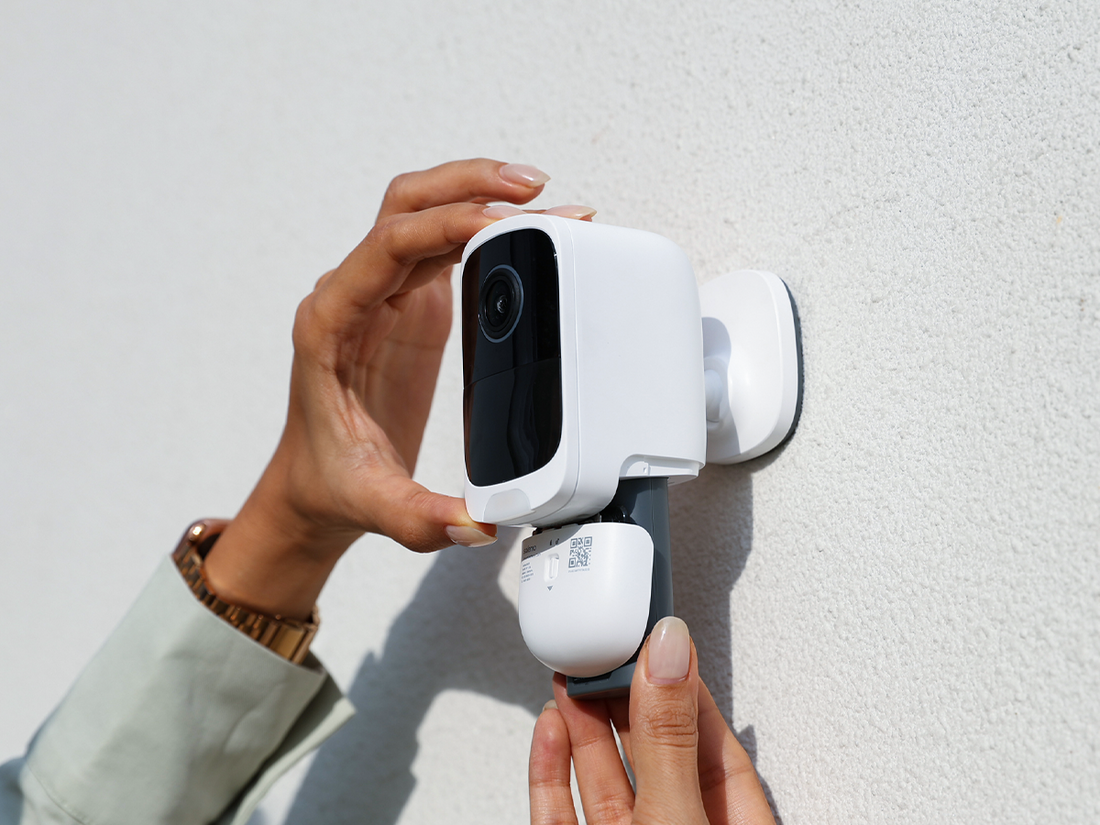Wired vs Wireless Security System: Which Is Better for You?

We understand that your home is your sanctuary, and protecting it is a top priority. With the rise in home security technology, choosing the right security camera system can be overwhelming.
As experts in innovative home security, we’re here to guide you through the decision-making process. So, when it comes to wired versus wireless security cameras, which is the better choice?
Let’s dive in and explore the options.
Understanding Wired Security Camera Systems
Wired security cameras have been a staple in home security for years. These systems are hardwired directly into your home’s electrical and internet systems, offering a reliable and consistent connection.
Pros of Wired Systems
- Reliability: With a direct connection to your home’s network, wired cameras deliver a stable and uninterrupted signal, making them ideal for areas with unreliable Wi-Fi.
- Consistent Power Supply: Wired cameras draw power directly from your home’s electrical system, eliminating the need to worry about changing or charging batteries.
- High-Quality Footage: Wired systems often provide higher resolution and more consistent video quality, which is crucial for detailed monitoring and security.
Cons of Wired Systems
- Installation Complexity: Installing wired cameras can be complex, typically requiring professional installation. This process may involve drilling and running cables through walls, which can be time-consuming and invasive.
- Less Flexibility: Once installed, wired cameras are fixed in place. This can be a limitation if you need to relocate or adjust the positioning of your cameras.
Understanding Wireless Security Camera Systems
Wireless security cameras represent a more modern approach to home security, utilizing Wi-Fi to transmit data and video. These cameras are growing in popularity due to their ease of installation and flexibility.
Pros of Wireless Systems:
- Easy Installation: Without the need for extensive wiring, wireless cameras can be installed quickly and easily. This makes them perfect for DIY setups or for those who want a hassle-free installation process.
- Remote Accessibility: Wireless systems allow you to monitor your home from anywhere via your smartphone or tablet, giving you peace of mind when you’re on the go.
- Versatility: Wireless cameras can be easily moved or expanded to cover different areas of your home, offering greater flexibility in your security setup.
Cons of Wireless Systems:
- Signal Interference: Wireless cameras rely on your home’s Wi-Fi network. They can be susceptible to signal interference from other devices, walls, or even weather conditions, which could affect their performance.
- Power Dependency: Most wireless cameras require batteries, which need regular changing or charging. However, at Safemo, our solar-powered options significantly reduce the need for frequent maintenance, providing a more sustainable and convenient solution.
- Security Vulnerabilities: Wireless systems can be more vulnerable to hacking if not properly secured. It’s important to use strong passwords and enable encryption to protect your footage.
Comparison: Wired vs. Wireless
To help you make an informed decision, here’s a quick comparison of the two systems:
| Feature | Wired Security Systems | Wireless Security Systems |
|---|---|---|
| Reliability | Stable connection, minimal interference | Prone to Wi-Fi interference |
| Installation | Complex, often requires professional installation | Easy, DIY-friendly |
| Flexibility | Fixed, hard to relocate | Highly versatile, easy to move |
| Power Supply | Consistent, no need for batteries | Battery-powered, with solar-powered options |
| Footage Quality | Typically high and stable | Depends on Wi-Fi signal strength |
| Security | Secure with fewer vulnerabilities | Potential risk of hacking if not secured properly |
Which One Is Right for You?
Choosing the right security system depends on your specific needs and the layout of your home. Here’s what to consider:
Home Size and Layout
For larger homes or those with thick walls, wired cameras may offer more reliable coverage. On the other hand, wireless systems are ideal for smaller homes or rental properties where wiring is not an option.
Security Needs
If you require consistent monitoring in critical areas, wired cameras might be the better choice. Wireless cameras, with their flexibility and ease of expansion, are perfect for covering additional areas as your security needs grow.
Budget Considerations
Wired systems often have higher upfront costs due to the need for professional installation. Wireless systems, especially with our solar-powered options, can be more cost-effective and easier to install.
Future Proofing
Safemo's wireless security systems are designed with the future in mind. Featuring AI-smart technology and solar power, our 2-Camera & Hub Set P1 with 5W Solar Panels offers a scalable solution that can grow with your needs.
Whether you start with one camera or a full suite, you can easily expand your system as your security requirements evolve.
Conclusion
Both wired and wireless security systems have their unique advantages. Wired systems offer reliability and consistent power, while wireless systems provide flexibility and easy installation. The best choice depends on your home’s specific needs, your security requirements, and your budget.
We’re committed to providing you with the best possible security solutions. Our wireless security cameras combine the latest technology, including AI-smart features and solar power, to offer a reliable, flexible, and future-proof option for your home.
Ready to enhance your home security? Explore the Safemo Shop and find the perfect system to protect what matters most.